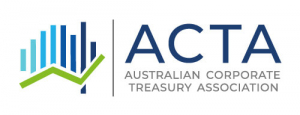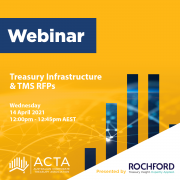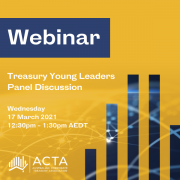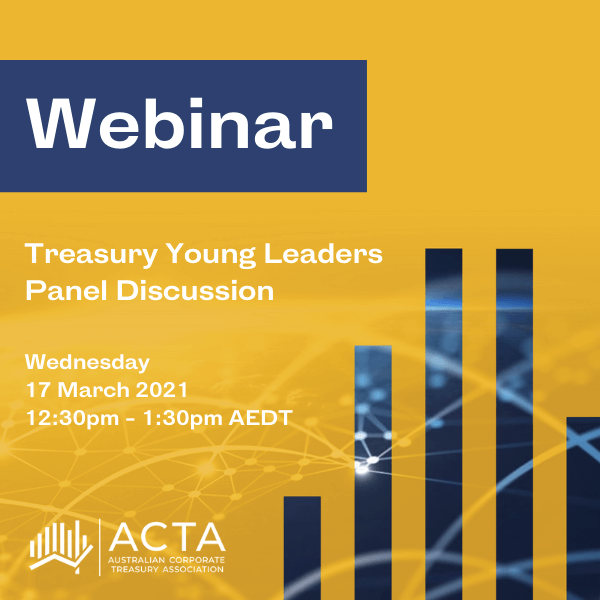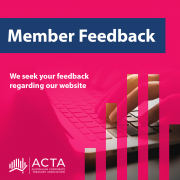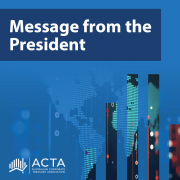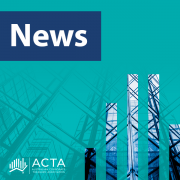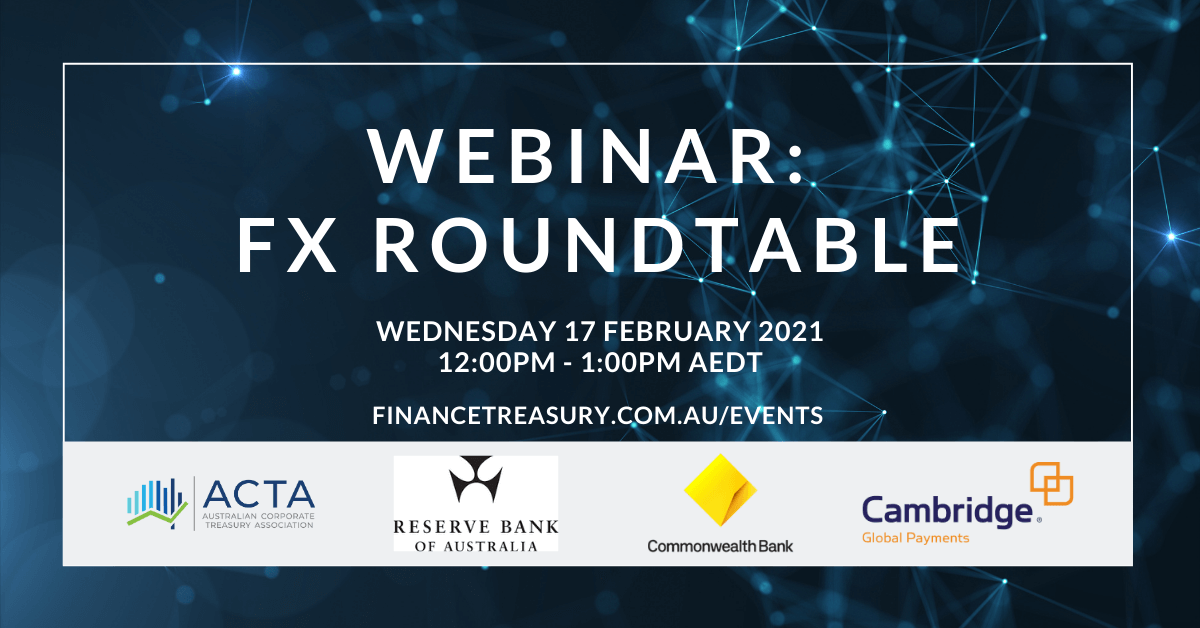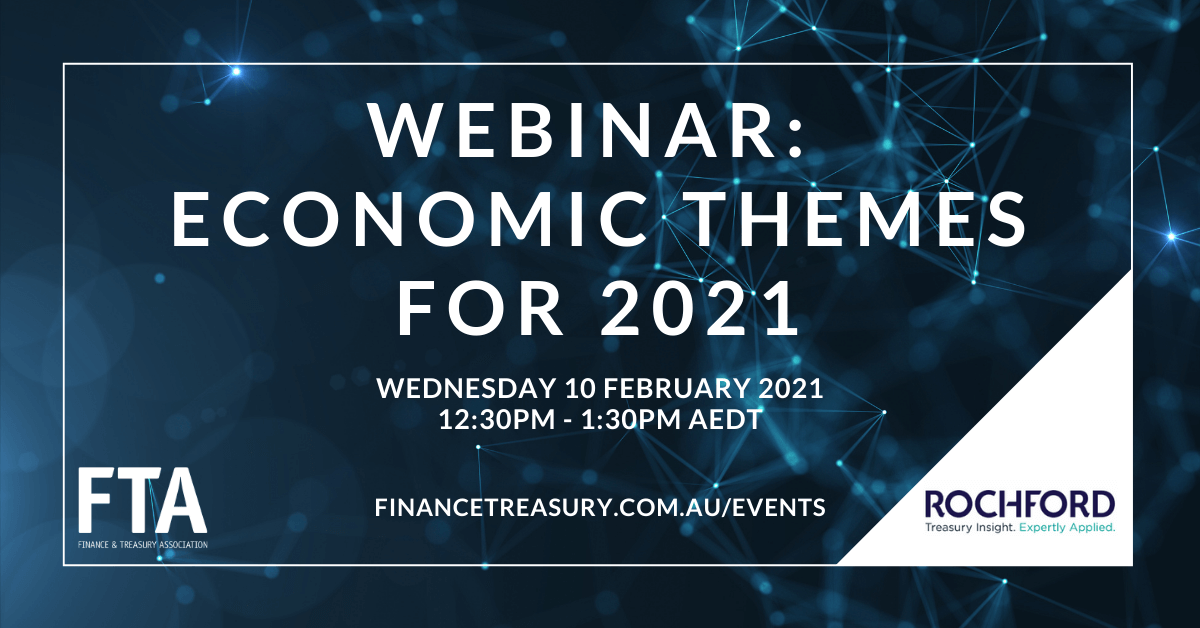March 2021
Welcome belatedly to 2021. As with everyone I’m sure, it has been a hectic start to the year.
When I wrote this welcome last year, the big external issue was the bushfires – I only briefly mentioned COVID as an emerging risk. None of us at the time had any idea how much of an impact COVID would have or how long it would go on. Clearly, that impact is still being felt in our day-to-day lives, both personally and in our work. How we come out the other side, and what we can learn, are top of mind for all of us. With that in mind, I recently sat down with three of my fellow ACTA Board members – Kurt Smith, Alice Van Der Geest, and Sarah Scopel to discuss where we saw 2021 heading.
What do you see as the big issues for 2021 in Treasury and what are your thoughts on the three key areas of FX, Interest rates, and debt markets.
Kurt – My focus is over the next ten years. In the short term, it’s about interest rates – the RBA has been clear that they intend to keep the yield curve low at the short end for a while and tight swap spreads are likely to continue owing to the level of liquidity in the banking system. This means managing the cost of debt will be dependent on the type of business you are in and the time horizon. For example, with long-term infrastructure businesses, the most cost-effective way to fund in a steepening yield curve with tight swap spreads is by reweighting between fixed and floating-rate exposure. For businesses with FX exposure, taking a longer-term view allows you to look through near-term volatility to establish where forward rates are in relation to the corporate strategy and to long-term trading ranges. For importers, for example, forward contracts will be more attractive towards the top of the trading range, and towards the middle to bottom of the trading, range options will be more attractive provided volatilities and skews are not too large. Active risk managers should be looking for interest rate levels that are consistent with their strategic plan and entering the derivative market at those times rather than waiting for physical issuance or refinancing. The risk ahead is that interest rates increase further and/or faster than is currently priced into the market; and for FX, that the global desire for weaker currencies to support economic growth leads to larger changes in currency relativities.
Alice – There are significant pools of available liquidity across markets globally which is pleasing coming into 2021. Debt investor engagement is vital on an ongoing basis, to enable businesses to present each organisation’s individual response to COVID, and the recovery profile in a post COVID world. It is important to shine light on the Australian context relative to the rest of the world. External marketing is key, especially for new and less frequent borrowers to provide investors with time to complete the required credit work. For me, I have a keen interest in seeing the rollout of the vaccine, its success, and the ability to return the world to a more normal setting. The recent increase in rates, off a low base, with interest rate curves beginning to steepen, so people are starting to be more optimistic – so the question there is, is now the time to lock away term funding? Treasurers must be nimble and agile and manage execution windows
Sarah – If COVID taught us anything, it is to be prepared for the extreme scenarios that are outside the normal bounds, such as what happens if the business completely shuts for a period of time. (Alice, yes, sensitivity norms are now way outside what we are used to). And we need to get everyone onboard faster. We need to educate everyone in our businesses about the need to balance the focus on preserving cash (including minimising cash interest cost), compared with holding a prudent liquidity buffer (that has a cost to hold).
What is the state of funding markets, are liquidity and cost levels back to normal?
Sarah – It all comes down to what sector you are in and whether COVID impacts are permanent or temporary and how easily you can look through the cycle to what conditions will look like once the COVID distribution globally dissipates
Alice – Yes, it comes down to COVID affected vs non-affected. But overall, margins are lower than last year regardless. And that’s on the back of people fighting for yield with QE around the world.
Kurt – if you’re a fund manager looking for yield, it’s almost like equities have less risk than Bonds because the risk on the Bond side is highly asymmetrical because of very low traded yields. Most fund managers don’t have much incentive to go too far down the credit curve to pick up yield – making investment-grade bonds much more attractive than sub-investment grade bonds. I think a low flat yield curve is partly what has fuelled the equity increases as it is almost a lower risk trade than low-yielding bonds. Quite an interesting idea to get your head around!
How is Treasury now viewed within business? Clearly, there was a huge focus in 2020, has that remained early in 2021? Is there a permanent shift in Treasury as a profession and how its viewed?
Sarah – Yes. A greater appreciation for the granular parts of Treasury that we focus on that maybe didn’t get as much attention before, for example, forecasting agility and accuracy, flexibility in documents, not only in relation to covenant headroom but also the reps and warranties. Our ability to forecast and pre-empt outcomes of various scenarios is definitely highly valued – being proactive vs reactive, including with our approach with lenders and rating agencies. Treasury is responsible for managing a key external stakeholder group which is now very well recognised (if it wasn’t already). Conveying the ‘credit’ messaging including a path to recovery from downturns and maintaining credit relationships is key to our roles and I believe general treasury functions are now increasingly recognised as being strategic rather than purely a compliance or reporting function.
Alice – There is nothing like a crisis that shines a light on Treasury, certainly providing an opportunity to have a seat at the table strategically. It is as important to be able to translate treasury issues both Internally and externally. As Treasurers, we are often solutionists, we come up with ideas on responses, our opinions are and should be sought. Our role is to explain it all in simple terms. It’s important to explain the why so that you are supported. So essentially, our ability to influence those key decisions around capital allocation and other strategies is higher than it has ever been.
Sarah – we’re more involved in decisions such as reviewing transactions before they go for approval as people understand the Treasury and capital structure implications better now. There is definitely a higher appreciation for the complexity of Treasury, it’s not about “pressing a button” to release funds.
Kurt – Treasury needs to have strategic influence, no doubt. Operationally, when 99% of the time everything is going well, things aren’t noticed, it’s just normal. Conversely, a 1% compliance breach in Treasury is usually escalated to Board and hence, is quickly noticed. You have to do the operational very well so that you can get access to strategic conversations, and credibility in providing strategic contributions.
It’s all about getting Treasury to the front of the value chain rather than at the end. To Sarah’s point, it’s being involved at the beginning, to influence decisions before they are made.
Treasurers who haven’t previously had access to ExCo or the Board now is a terrific opportunity to change that and have some proactive strategic influence rather than just being operationally reactive.
Looking back on 2020, and in particular, Australia, as an economy, a place to do business, where you get funding, how the financial system works – do you think it all worked, or do you think, gee that was tough and didn’t work as well as we’d like. Did it expose flaws in the system?
Sarah – The support of the financial institutions early, when no one knew what would happen with COVID, was phenomenal – I was working at an organisation where the business ultimately completely shut down with very little notice and the banks were able to navigate around this to provide confidence through the highly uncertain environment which allowed us to focus on returning to reopening and looking after the people in the business. There was Government support at the same time. Thanks to the leadership of the domestic banks, Australian companies were lucky enough to have access to global funding as we were effectively operating in that protected environment.
Alice – While the co-ordination was hard work, things went as well as possible. What was different to normal crises, was that everyone was feeling the same pain from a liquidity point of view. The view across all parties was, let’s work together to get it done. Relationships with lenders matter, it is evident that having strength in the relationship built over time does make it easier, especially in response to a crisis.
Kurt – I think the jury is still out for Australia as an open economy. In the very short term, we’ve done okay. Given the nature of COVID, it has been great to be as isolated as Australia, and probably even more so for me as a West Australian. But, we essentially have an oligopoly in Banking, and the economy has very much been underwritten by taxpayer funds through Government. How that works its way through the economy over the next decade is going to be interesting. COVID levy?
Turning our mind now to 2021 and beyond, have Corporations now turned their minds back to growth?
Alice – cautiously optimistic. I think most still need to see some more proof points that the trajectory is positive. So, you’d be planning for positive, but not yet acting.
Sarah – Again, I think that is sector-specific and also dependent on the competitive dynamics in an industry to be best placed for the world post-COVID.
Kurt – an interesting lead indicator for me are the bank and consulting firms recruiting in industry-facing roles. It seems they are starting now to recruit, and given their exposure to all sectors of the economy, that is a positive. Western Australia has also been performing well economically as the mining sector is quite strong.
Any last thoughts?
Alice – I think we need to focus on our Treasury teams, there could be increased external opportunities. Make sure you do your bit to look after good people
Kurt – for the ACTA, we need to keep thinking about how we are positioned to help our Community.
Kurt’s last point is a key one. As a professional association, our role is to provide services to our Community. With that in mind, a number of deliverables for 2021 are very exciting.
We will soon be advising details of our Certification program, offering a true learning and consolidation experience for Treasurers. Not only will this program provide education, it will give the Treasury community recognition of the individuals within it as professionals in their own right, as we see with accountants, engineers, and lawyers.
We are super keen to begin bringing back face to face networking and CPD opportunities. This will always be carried out with the best health and safety requirements top of mind, and will also provide options for people who are unable to be face to face. Our digital experience over the past 12 months has been a big plus and we plan to make the best use of it!
And we are planning on Conference for 2021 to be bigger and better than ever. Notwithstanding any further changes to restrictions and requirements, we will be in Melbourne, at the Melbourne Convention and Exhibition Centre from November 30, bringing our usual world-class program and exhibitors back to a face-to-face experience. As with the above comment though, we will also be managing risk by having alternatives available should they be needed.
I am immensely proud of what we have been able to achieve over the past 12 months as an industry, but I am excited for the coming 12 months ahead and how the Australian Corporate Treasury Association can assist you and your organisation to stay informed, stay connected, and continue to deliver in your vital role in the Treasury profession, all of us being part of Australia’s Treasury Community.
Steven Cunico
President
Australian Corporate Treasury Association

